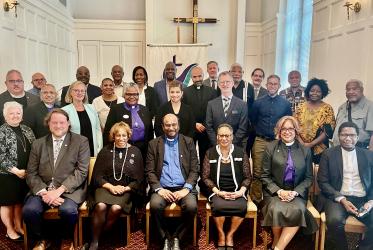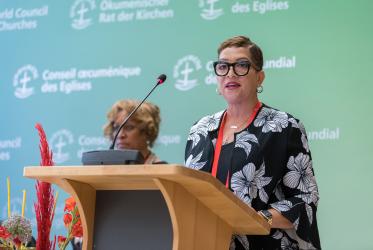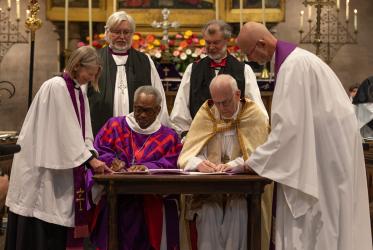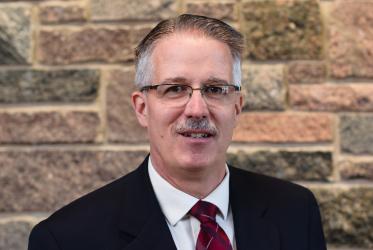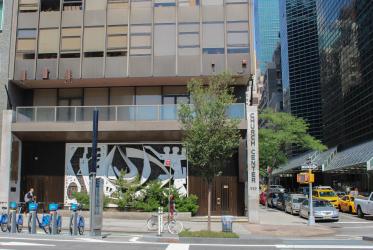Convención Nacional Bautista Progresista
*Repartition (membership): 1,000,000 outside the USA (in the UK, Ghana, Kenya, South Africa, Bahamas, Cuba, Haiti, Jamaica, Ecuador, and Nicaragua).
The Progressive National Baptist Convention, Inc. (PNBC) started as a movement which reflected the religious, social and political climate in the USA in the 1950s. The seeds of the PNBC were sown at that time by discontent over election procedures in the National Baptist Convention, USA, Inc. But the roots of its development went far beyond issues of tenure of office. The formation of the convention was wrapped up in the civil rights movement and was begun by some of the same persons who were deeply involved in the freedom movement for African Americans in the United States. From a religious perspective, churches from across the United States were suffering from an identity crisis fostered by racism, and conservative political policies and practices that supported segregation and US apartheid. In this context, the question was whether the church would be at the forefront of the civil rights movement or would only emphasize narrow ecclesiastical concerns and worship.
In 1961, 33 delegates met to envision a new convention that would be progressive and forward-thinking, and respond to the spiritual and social needs of the time. As a result, the Progressive National Baptist Convention Inc. was formed. Leadership from across the United States joined the Progressive Baptist family and spawned the movement. The PNBC became a new Christian movement which included an array of social and political concerns embodied in its founding principles of fellowship, progress, peace and service. The movement was undergirded by Dr Martin Luther King Jr's struggle for freedom for African Americans. It was the PNBC that provided a denominational home for Dr King Jr and many of the Baptist leaders in the Civil Rights Movement. As a result of their involvement, the centrepiece of the PNBC witness became one of social justice and human liberation as a mandate of the gospel. In essence, the PNBC became a living African American Christian organism, vibrant with energy and committed to the social gospel for the transformation of US society.
From its very beginning, distinctive characteristics emerged that separated it from other African American Baptist conventions: tenure in office, a unified giving programme, and kingdom priorities. Any member of the convention whether lay, clergy, male or female is eligible to hold any office of the convention, which ensures the broadest possible participation of all of its members. The member churches are required to contribute one percent of their previous year's operating budget as their membership fee. The PNBC has an integrated mission programme. It is dedicated to the education of African Americans and has as one of its major priorities the support of African American colleges, schools of religion, theological schools and universities. The PNBC is actively engaged in national and international ministries in Africa, Asia, Europe, Latin America and the Caribbean as well as the United States of America.
The membership of the PNBC in the USA is primarily urban and comes from many different social classes and strata. A large percentage of PNBC churches are engaged in urban programmes that focus on the youth, the elderly, housing, economic development and prison ministries.

